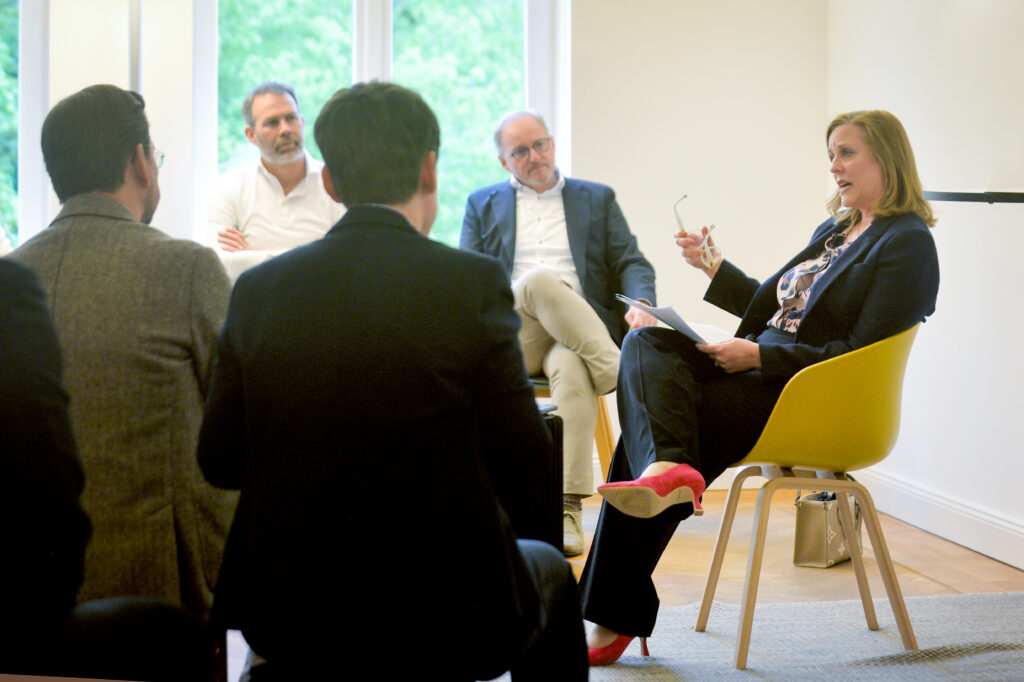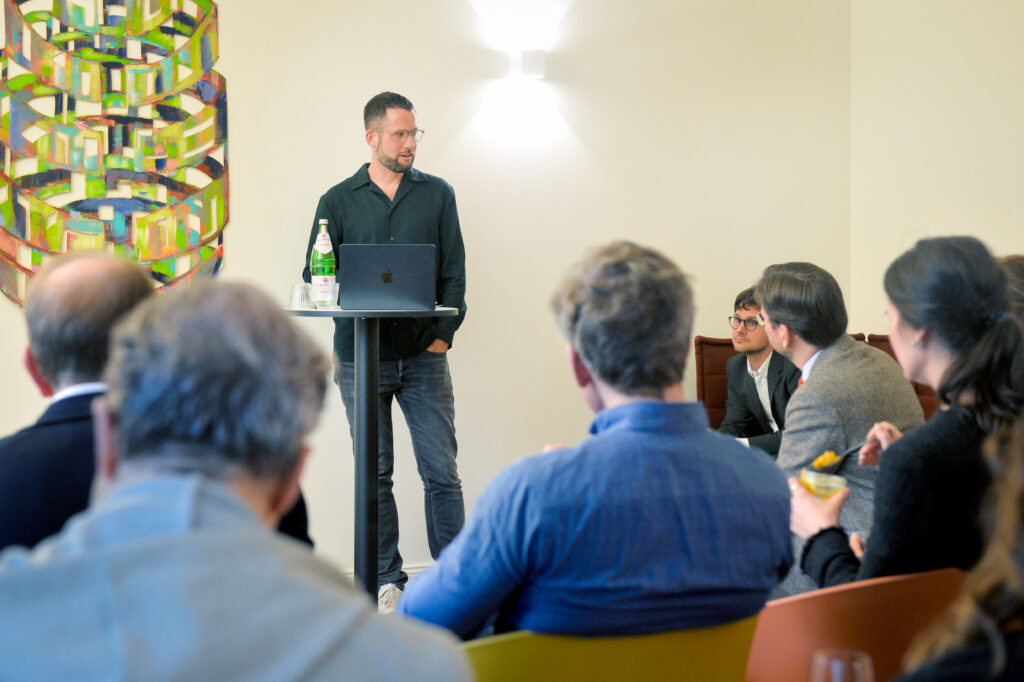- AI
- blog
- ESG
- Sustainability
Members of the Page community recently convened for a Page International Event at the PRCC offices in Dusseldorf. Featuring Jill Meiburg, Head of Group Communications and Brand at GEA Group, and Jan Hiesserich, VP Strategy & Communications at Aleph Alpha, the presentations at this event shed light on how communicators should respond to emerging technologies and social imperatives. Below are summaries from both presentations.
Fluency in Sustainability and ESG - a CCO Imperative

Jill spoke about how GEA Group is tackling sustainability to make a real impact, and how communicators fit into the equation.
“The shift is happening, and we see that the CCO role is evolving toward helping our organizations manage large-scale transformations,” Jill said.
Communicators need to understand sustainability beyond the surface level, really knowing where their organization’s greatest negative impact is. This is vital for mitigating in the short term, and for focusing innovations efforts in the long term. That innovation aspect often requires broad transformational leadership.
“Sustainability has to be properly anchored in the company,” Jill said. “And it can be very hard to do that when the company is stuck in organizational models, or is an inflexible organization.”
Jill identified three crucial keys for successfully implementing sustainability transformation:
On April 30, 2024, GEA will set history as the first company in the DAX index family to have its shareholders vote to approve its path to Net Zero, proving the efficacy of the advice above.
The Most Important Questions Don’t Have Easy Answers – from Artificial to Augmented Intelligence

Jan’s discussion on AI weaved philosophy and anecdotes to ultimately describe the ways we need to conceptualize AI.
“Technology must be defined by its limitations,” Jan explains. “That is not a negative. Once you are aware of the limitations of a technology, then it opens you to the full possibilities. So that is me being an optimist.”
Citing historical thinkers like Schopenhauer and Heisenberg, Jan ultimately reached the conclusion that AI will probably never become completely human — and there are forms of creativity that only human beings can master. Skills such as critical analysis and abstracting meaning from information, those are still outside the grasp of technology. It is critical to remember these limitations when considering how to implement these technologies.